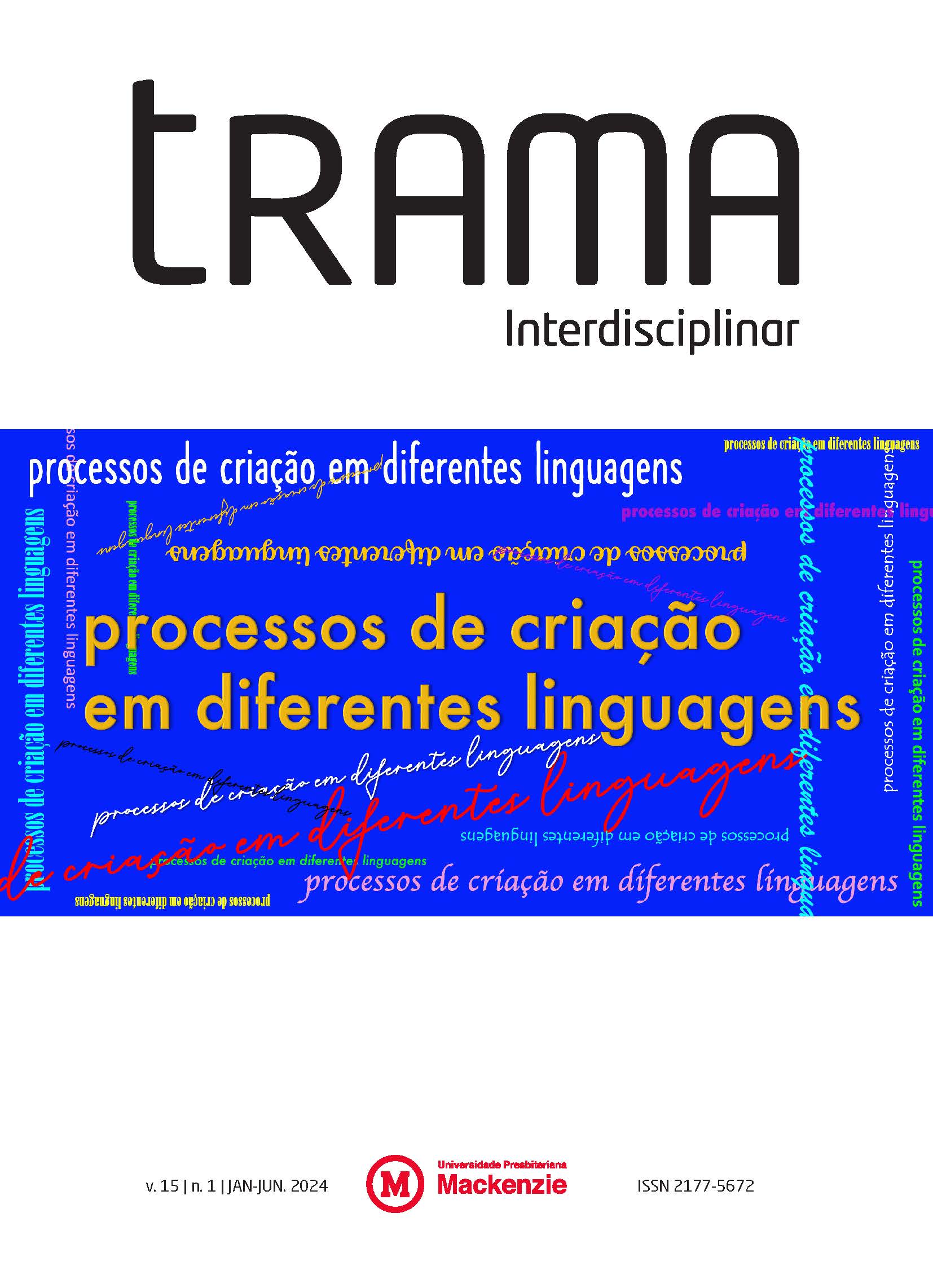Creativity and Materiality: a creative practice in a Post-graduation Course
Creativity and materiality: a creative practice in a post-graduation course
Keywords:
Criatividade. Materialidade. Imaginação material. Mediação Afetiva. Ação criadora.Abstract
The relationship between the material and the mind is complex and challenging. It is necessary to understand not only, the evidence of the mutual influence between them, but also to look for ways the mind operates through the body to have contact with the material. The objectives of this study were to understand creativity in action contexts, with a focus on materialities, from the perspective of Christopher Bardt, and to identify the potential influence of materials, in creative processes. Five members of a research group dedicated to the investigation of creativity from the University of Brasilia’s Graduate Program in Developmental and School Psychology took part in the study. For the discussion of the creative process, with base in the imagination or mental action on a material, we selected a practical activity during the class. The proposal foresaw two stages, a relaxation moment, and the creation of text and image based on an object chosen for each participant. The analysis was constructed from oral reports, written productions, and drawings produced by participants. Results indicated that relaxation may be a facilitating experience for the creative process. It was shown that the experience with the material activates memory, imagination and creativity. Materiality changes with affective mediation and the creative action is influenced by material imagination.
Downloads
References
ABRANTES, Ana; SANMARTIN, Stela Maris. Intuição e criatividade na tomada de decisões. Colaboração de David de Prado. São Paulo: Trevisan, 2017.
BARDT, Christopher. Material and mind. MA: The MIT Press, 2019.
GLÃVEANU, Vlad Petre; NEVES-PEREIRA, Mônica Souza. A psicologia cultural da criatividade. In: NEVES-PEREIRA, Mônica Souza; FLEITH, Denise de Souza (orgs.). Teorias da criatividade. Campinas: Alínea, 2020. p. 137-163.
IVCEVIC, Zorana Pringle; NUSBAUM, Emily. From having an idea to doing something with it: Self-regulation for creativity. In: KARWOWSKI, Maciej; KAUFMAN, James (ed.). The creative self. New Haven: Elsevier Inc, 2017. p. 343-365.
OSTROWER, Fayga. Criatividade e processos de criação. Petrópolis: Vozes, 1987.
PRADO, David. Manual de activación creativa. Santiago de Compostela: Centro de Estudios Creativos-Lubrican, 1987.
PRADO, David. Relajación creativa. Santiago de Compostela: Coleção Máster Internacional de Criatividade Aplicada Total, 1995.
PRADO, David; CHARAF, Martina. Relajación creativa: técnicas y claves para el entrenamiento, la competición y la práctica deportiva. Barcelona: INDE Publicaciones, 2000.
RIBEIRO, Darcy. A universidade necessária. Rio de Janeiro: Paz e Terra, 1969.
RUNCO, Mark. Creativity: theories and themes: research, development, and practice. San Diego: Academic Press, 2007.
VALSINER, Jaan. Fundamentos da psicologia cultural: mundos da mente, mundos da vida. Porto Alegre: Artmed, 2012.
VYGOTSKY, Lev Semyonovich. A construção do pensamento e da linguagem. Tradução: Paulo Bezerra. 2 ed. São Paulo: Martins Fontes, 2009.
VYGOTSKY, Lev Semyonovich. A quarta aula: a questão do meio na pedologia. Psicologia USP, São Paulo, v. 21, n.4, p. 681-70, 2010. Disponível em: https://doi.org/10.1590/S0103-65642010000400003. Acesso em: 14 fev. 2023.
ZITTOUN, Tânia; GILLESPIE, Alex. Imagination in human and cultural development. New York: Routledge, 2018.
Downloads
Published
How to Cite
Issue
Section
License
Copyright (c) 2024 Edileusa Borges Porto Oliveira, Stela Maris Sanmartins, Suellen Cristina Rodrigues, Kotz, Asdrúbal Borges Formiga Sobrinho, Cristiano André Hoppe Navarro

This work is licensed under a Creative Commons Attribution 4.0 International License.
A Revista TRAMA Interdisciplinar reserva os direitos autorais das contribuições publicadas em suas páginas. Esses direitos abrangem a publicação da contribuição, em português, em qualquer parte do mundo, incluindo os direitos às renovações, expansões e disseminações da contribuição, bem como outros direitos subsidiários. Autores têm permissão para a publicação da contribuição em outro meio, impresso ou digital, em português ou em tradução, desde que os devidos créditos sejam dados à Revista TRAMA Interdisciplinar. O conteúdo dos artigos é de responsabilidade de seus autores.








